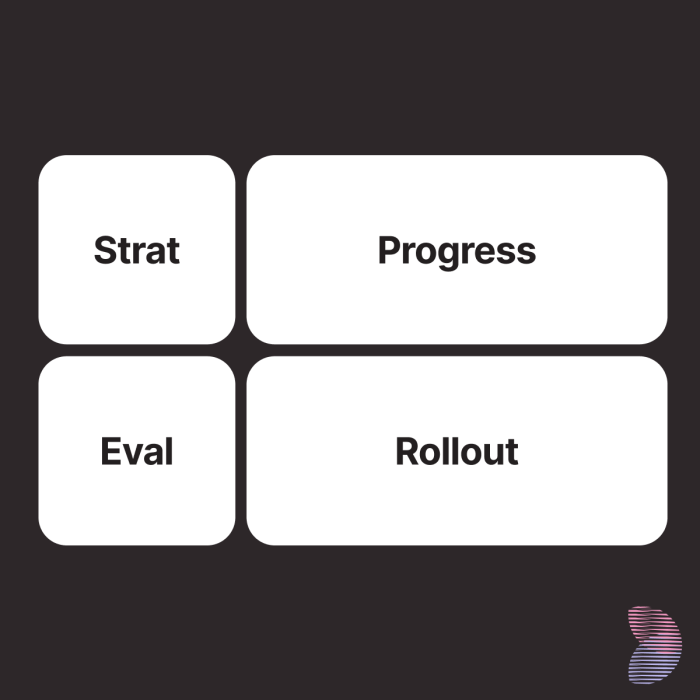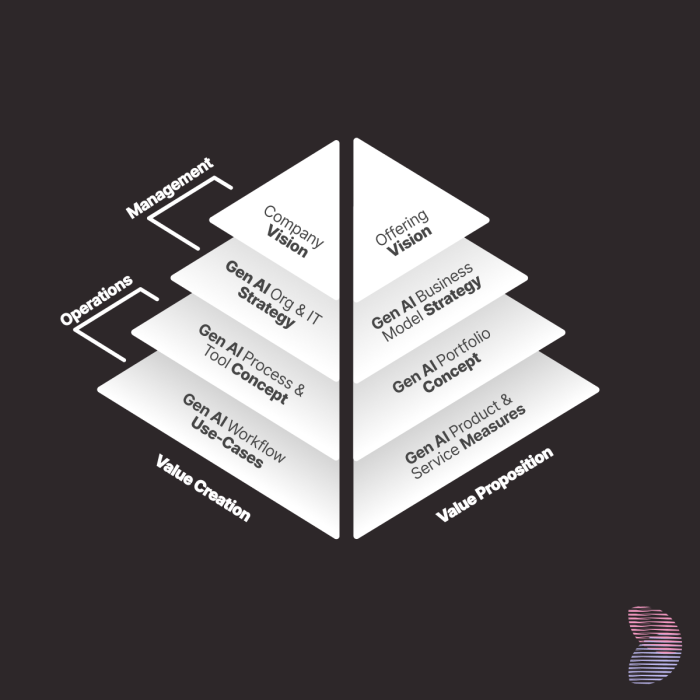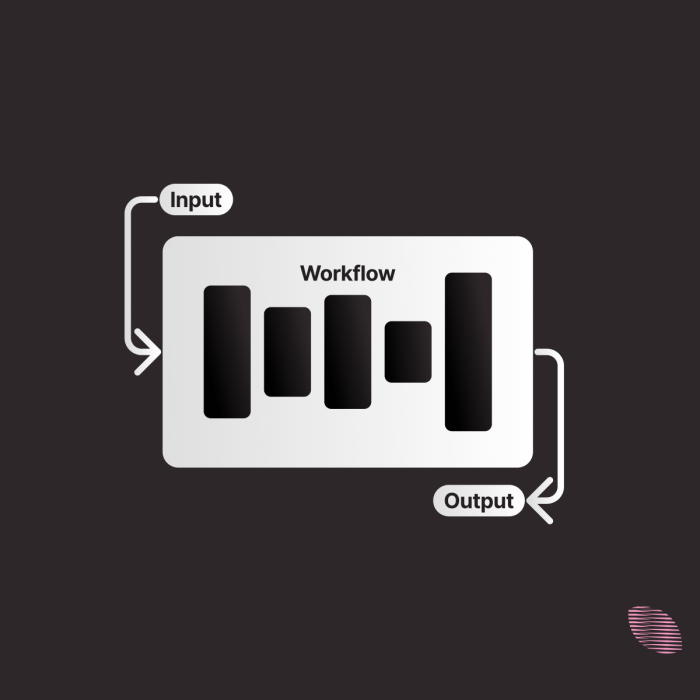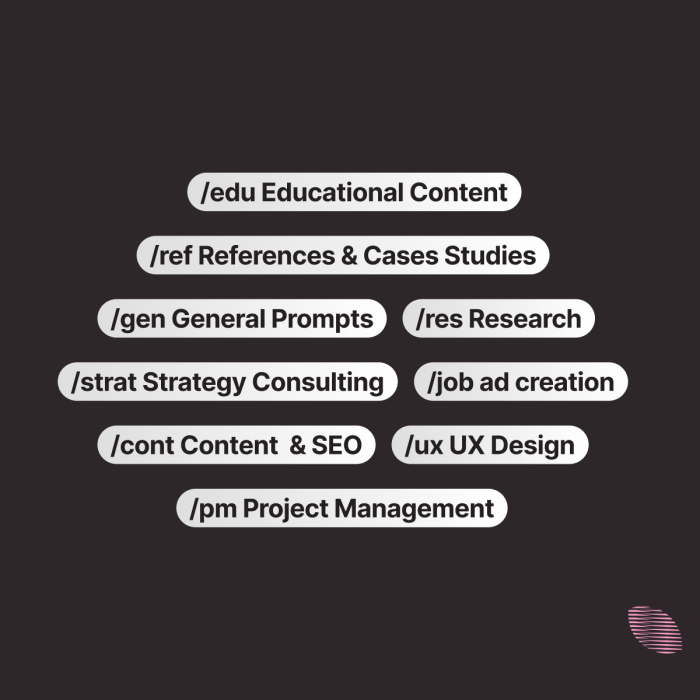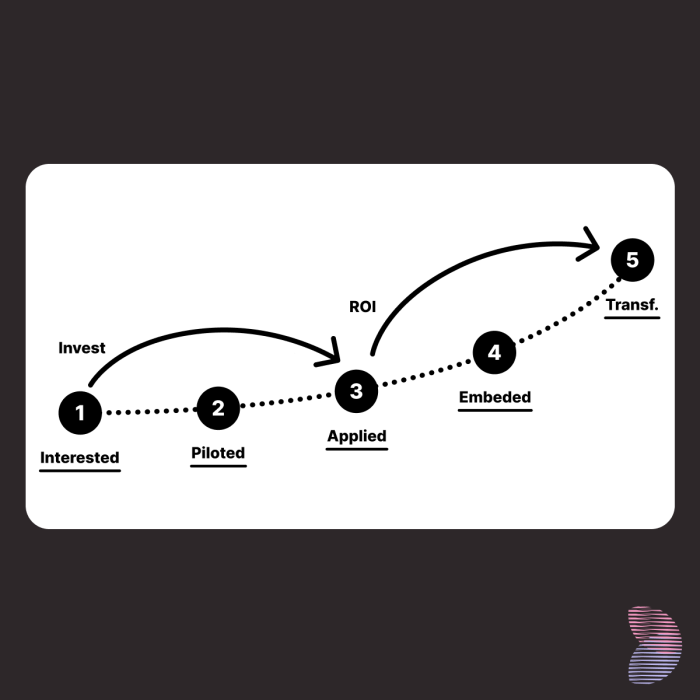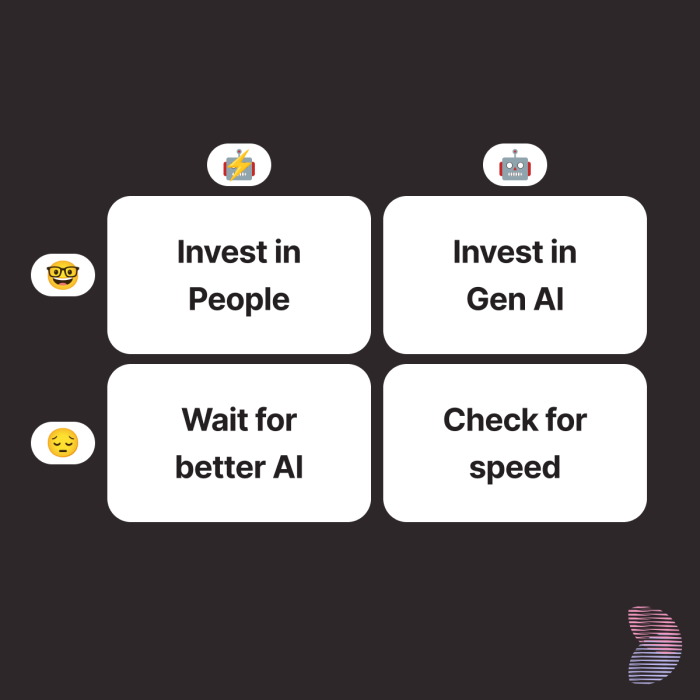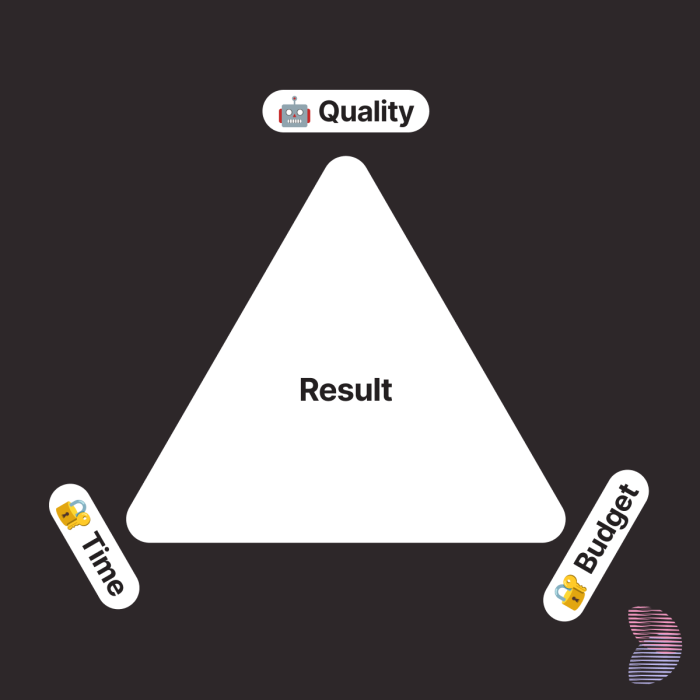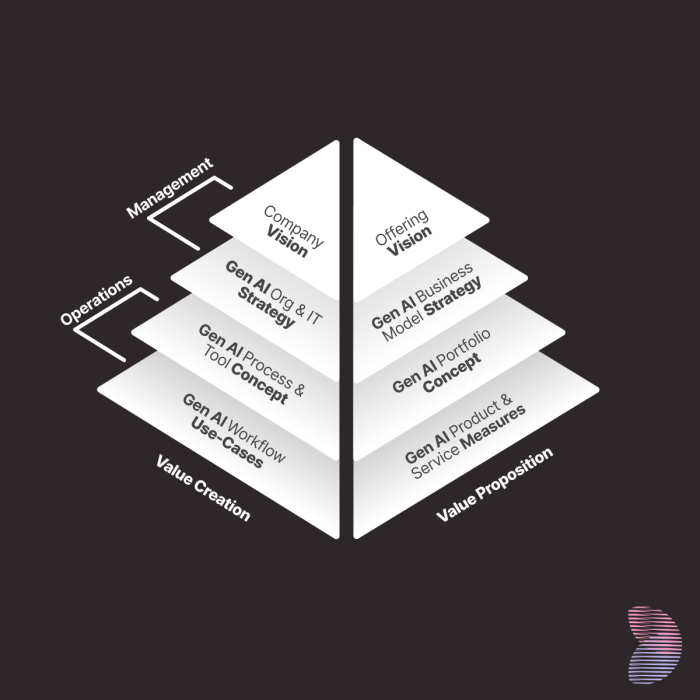A Guide for Implementing AI with Methodology
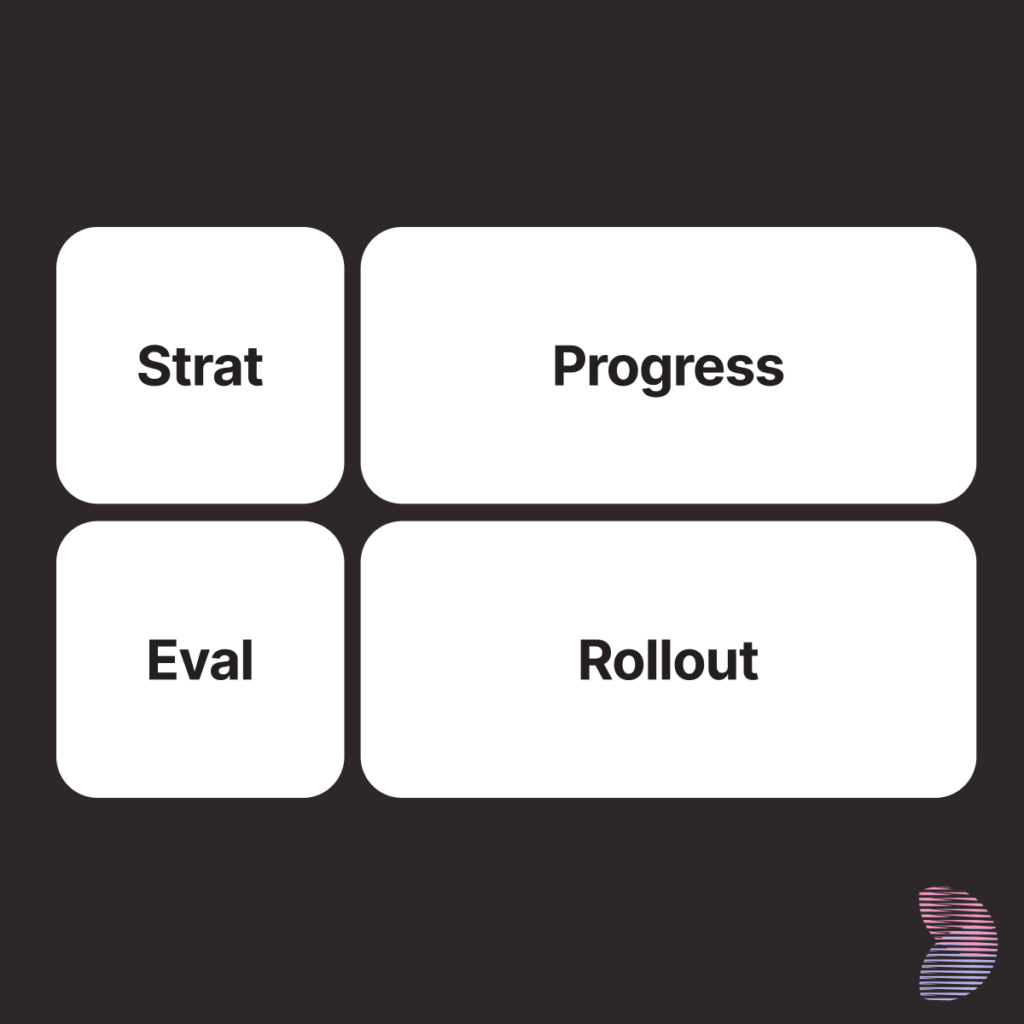
Look, I’ll be straight with you here – if you’re thinking about implementing generative AI in your company without a proper methodology, you’re basically still trying to figure out VHS players while everyone else is streaming on Netflix. That’s just not going to work in today’s world, and I’ll tell you why.
Why This Actually Matters
So, generative AI has been absolutely exploding since early 2023, right? And I’ve been working with companies – a lot of them actually – helping them figure out how to use these LLMs and generative AI systems effectively. What I’ve noticed is that the companies that just jump in without thinking it through, they’re the ones that struggle the most.
The thing is, and this is something I always tell my clients, knowledge work has always been really hard to scale. You can’t just throw more people at a problem and expect it to work better – actually, that often makes things worse. I’ve seen this happen so many times in agile software development, where adding more team members just creates more communication overhead and actually slows things down.
The Data is Pretty Clear on This
Now, before you think I’m just talking theory here, let me share some actual numbers with you. There are these studies – and I’m talking about proper MIT research here – that show LLMs can reduce the time needed for tasks by about 27% while improving quality by 45%. That’s not just incremental improvement, that’s transformational.
What I find fascinating is that across different studies, you consistently see these patterns: knowledge workers become 10-15% more effective overall, they complete tasks 25-30% faster, and the quality of their work improves by 40-45%. That’s the kind of improvement that can completely change how a business operates.
Why Consulting Models
Are Critical
Here’s the thing – and this is something I’ve learned from working with dozens of companies – you need proper frameworks to make sense of complex stuff like AI implementation. I personally use what I call consulting models because they help create a common language within organizations.
Without these models, you get everyone talking past each other. The tech team is talking about LLMs and RAG systems, the business folks are worried about ROI, and management is trying to figure out what any of this means for their strategy. It’s a mess, frankly.
My Approach
Four Models That Actually Work
So I’ve developed this framework – actually four different models – that help companies navigate AI implementation systematically. Let me break this down for you:
Level 1: Identifying Measures
Strategy Model: This helps you visualize different layers of your AI strategy. I use this to show companies how their AI initiatives connect to their overall business goals.
Maturity Model: This is where you assess where your company actually stands with AI adoption. Are you just starting out? Do you have pockets of excellence but no coordination? This model helps you figure that out.
Level 2: Evaluating Measures
Evaluation Model: This brings together the classic desirability, viability, and feasibility framework but applies it specifically to AI initiatives. It’s a visual way to assess which AI projects are actually worth pursuing.
Stage-Gate Model: This helps you understand how mature your AI rollout is – from initial idea all the way to scaled implementation across the organization.
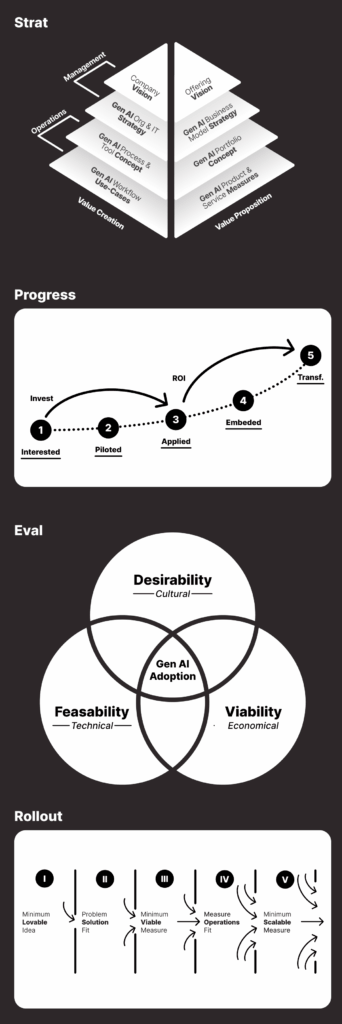

What Makes This Different
The thing is, these models don’t just work for AI implementation. I’ve used similar frameworks for digital transformation, innovation management, data-driven work processes, even sustainability initiatives. The key is having a structured but flexible approach that can adapt to different contexts.
I always tell my clients – and this is something I believe strongly – that successful transformation requires both courage and reflection. You can’t just copy what worked for another company; you need to understand your specific context and challenges.
Why Most Companies
Get This Wrong
Here’s what I see happening all the time: companies get excited about AI, they start a pilot project, maybe they get some initial results, and then they try to scale it without really thinking through the implications.
They don’t consider things like:
How does this fit with our existing processes?
What training do our people need?
How do we measure success?
What are the risks we need to manage?
That’s where having a proper methodology becomes absolutely essential. Without it, you’re just hoping things work out, which is not a business strategy.
The Reality Check You Need
Look, I get it – there’s a lot of hype around AI right now. But the data is pretty clear that this technology is going to transform how knowledge work gets done. The question isn’t whether AI will impact your business, it’s whether you’ll be ready for it.
Companies that approach AI implementation methodically, with proper frameworks and clear processes, they’re the ones that are going to succeed. The ones that just wing it? They’re going to struggle.
What I'd Recommend
If you’re serious about implementing AI in your organization, here’s what I’d suggest:
Start with a proper assessment of where you are now
Define clear objectives for what you want to achieve
Use structured frameworks to evaluate and implement initiatives
Focus on building capabilities, not just deploying tools
Measure and iterate based on real results
The companies I work with that follow this approach consistently see better outcomes. They avoid the common pitfalls, they get buy-in from stakeholders, and they build sustainable AI capabilities rather than just implementing point solutions.
The Bottom Line
Implementing AI without proper methodology is like trying to navigate without a map. Sure, you might eventually get somewhere, but it’s going to take longer, cost more, and you’ll probably end up somewhere you didn’t intend to go.
The companies that are going to thrive in the AI era are the ones that approach it strategically, methodically, and with proper frameworks. That’s not just my opinion – that’s what I’ve seen work in practice across dozens of implementations.
So the question is: are you ready to do this right, or are you still going to be tinkering with VHS tapes while your competitors are streaming in 4K?

